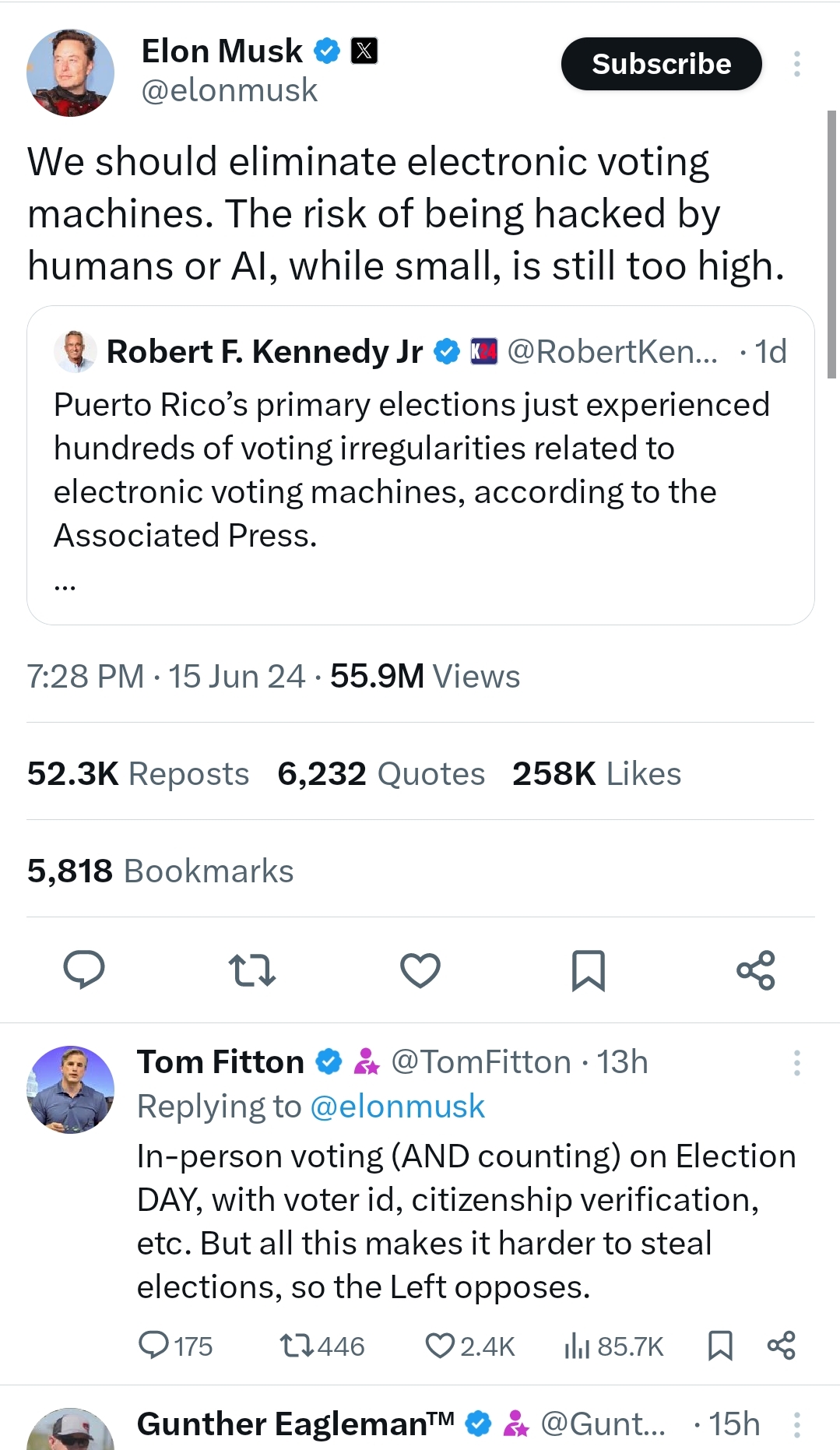this post was submitted on 17 Jun 2024
261 points (86.6% liked)
People Twitter
5277 readers
348 users here now
People tweeting stuff. We allow tweets from anyone.
RULES:
- Mark NSFW content.
- No doxxing people.
- Must be a tweet or similar
- No bullying or international politcs
- Be excellent to each other.
founded 1 year ago
MODERATORS
you are viewing a single comment's thread
view the rest of the comments
view the rest of the comments

As others have said, the scalability ideal is to have electric/mechanical counters but with paper ballots. Keeps the paper trail for double checking, but also allows poll workers to deliver quick initial results to everyone breathing down their necks.
Pretty sure that's how we do it up on Canada. I think random samples are hand-counted to make sure the machine count is accurate. There's early voting too so not all just in one day.
I've never used a machine in 40 years of voting in Canada. And if they show up, I won't use them.
We fill out a paper, but a machine might scan them based on what OP is saying.
Then they will spot check it and have the paper backup if needed.
That's how we do it in my part of the US. And the whole thing is live streamed and audited. My mail ballot is also scanned twice, and I can check if it was received (and signature checks out) and counted. If there's an issue, I can correct my ballot before election day.
Well here in Germany we have about 40-50 million votes to count in a federal election. Right when the booths close we get an exit poll that is already pretty close. After 1-2 hours there are extrapolations that are even closer and next morning, there is usually the certified result. All on paper, counted by hand.
Unfortunately the software we use(d?) to transmitt and add up the votes is abysmal:
https://www.ccc.de/de/updates/2017/pc-wahl
https://www.youtube.com/watch?v=0J61-t3OJKg
My state does Scantron style ballots. You fill in the little ovals and put it into a machine to be counted.